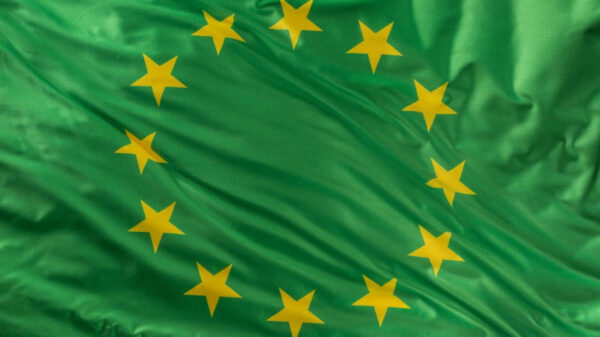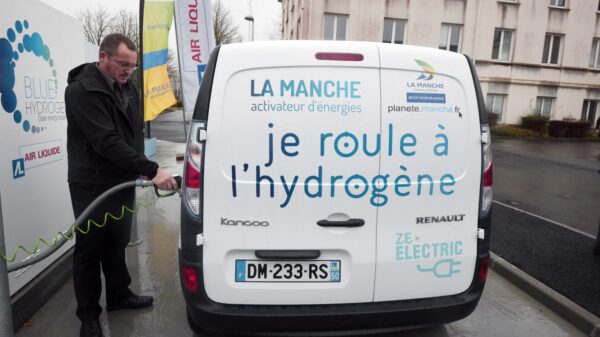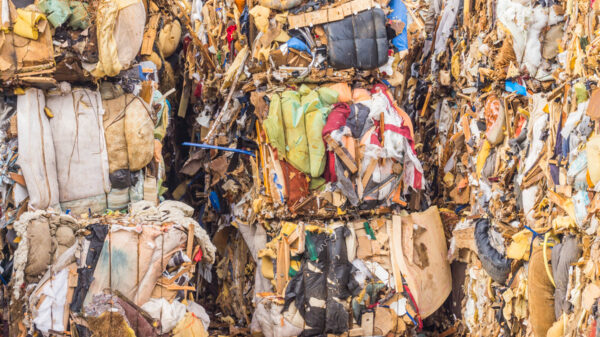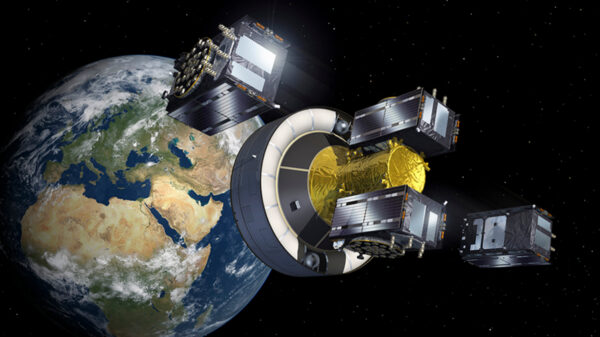By Jonathan Josephs, Business reporter, BBC News
 Getty Images
Getty ImagesGlobal trade “is not having the best of times at the moment”.
That is the admission of the director general of the World Trade Organization (WTO), Dr Ngozi Okonjo-Iweala. “We are seeing increasing protectionism, some undermining of the WTO rules, and some of this is leading to fragmentation,” she tells the BBC.
“Global trade is really part of the lifeblood for making countries resilient – and also for underpinning growth, so we are concerned about that.”
In recent weeks and months these fragmentations have come to the fore with the EU imposing provisional tariffs of up to 37.4% on imports of Chinese electric vehicles (EVs). It followed after the US in May introduced 100% tariffs on Chinese EVs.
Both Brussels and Washington accuse the Chinese government of unfairly subsidising its EV sector, allowing producers to export cars at unfairly low prices, and threatening jobs in the West.
President Biden has also increased import taxes on a range of other Chinese products that he said formed “the industries of the future”. These include EV batteries and the minerals they contain, the cells needed to make solar panels, and computer chips.
Meanwhile, the US has been pouring billions of dollars of government money into green technology, through its Inflation Reduction Act, which aims to reduce a reliance on Chinese imports.
EU trade commissioner Valdis Dombrovskis tells the BBC that Europe does not want to close the market for EVs. “We welcome imports, we welcome competition, but this competition must be fair,” she says.
Last year, the volume of global trade fell for just the third time in 30 years, according to the WTO. It says the 1.2% decline was linked to higher inflation and interest rates, and is forecasting a recovery this year.
However those factors have their roots in events that are continuing to fundamentally reshape the global economy, the International Monetary Fund’s (IMF’s) first deputy managing director Gita Gopinath explained in a recent speech.
“What we’ve seen in the last few years, I would say, especially when it comes to global trade relations, is nothing like we’ve seen since the end of the Cold War.”
“The last few years, you’ve had numerous shocks, including the pandemic. We had Russia’s invasion of Ukraine, and following these events, increasingly, countries around the world are guided by economic security, and national security concerns, in determining who they trade with and who they invest in,” she said.
That’s affecting countries as far apart as Peru, Ghana and Vietnam as they increasingly find themselves having to choose between strengthening economic ties with the western powers, or a China-Russia axis.
“We’re also concerned about the emerging fragmentation that we see in the trade data,” says the WTO’s Dr Okonjo-Iweala. “We’re seeing that trade between like-minded blocks is growing faster than trade across such blocks.”
She warns that “it will be costly for the world” to continue down this path. WTO research has estimated that price at 5% of the global economy, whilst the IMF has suggested it could be nearer to 7% or $7.4tn (£5.8tn) of lost output in the long run.

 Getty Images
Getty ImagesThe EU’s introduction of tariffs on Chinese-made EVs follows a surge in their exports to Europe over the last few years. Exports jumped from $1.6bn in value in 2020 to $11.5bn last year, according to one study, which said they now made up 37% of all EV imports into the EU.
BYD, Geely and SAIC are some of the Chinese EV makers said to have benefitted from billions of dollars worth of government help.
After many years of support Chinese EV companies no longer need that help, says Jens Eskelund, president of the European Union Chamber of Commerce in China. “They are today simply very competitive on their own terms. I think the introduction of tariffs is a symptom that something is out of balance.”
When it comes to broader relationship, Mr Eskelund says it’s “mind boggling” that since 2017 the volume of goods that the EU has sold to China has fallen about a third, even though China’s economy has been growing steadily.
Citing Chinese restrictions around market access for overseas firms, and tough security regulations, he adds: “I think it’s fair to say that that Europe still remains a significantly more open market to Chinese companies, then the other way around. And that is obviously something that needs to change.”
The chamber’s recent survey showed that members have the lowest confidence on record for investing in China.
It comes as the EU is trying to lower its economic dependence on China. European Commission President Ursula von der Leyen last year described the need to “de-risk not de-couple” its relations with China.
Brussels’ concerns include Beijing using sensitive technology for military purposes, and its support for Russia as it continues its offensive in Ukraine.
Companies including Ikea, Nike and Apple are also trying to become less reliant on China.
Whilst the EU and China are set to hold talks about the potential EV tariffs, Chinese state media has reported that retaliatory measures are being considered on EU goods including pork, cognac and luxury cars.

 Getty Images
Getty ImagesHowever, there are other barriers for global trade to overcome, including in two of the most important arteries for moving goods around the world.
This year Panama Canal officials had to reduce the number of ships allowed to traverse the waterway. This is due to a lack of rainfall to fill the lake that feeds the canal.
Meanwhile, the Suez Canal is effectively cut off because of ongoing attacks on commercial ships by Houthi rebels in the Red Sea. Traffic through the canal is down 90%, according to logistics firm Kuehne+Nagel.
Rolf Habben Jansen, chief executive of the German shipping giant Hapag-Lloyd, says this disruption means that the rates his firm charges are up between 30% and 40%.
Whilst shipping costs are a small part of retail prices, Mr Habben Jansen says “these extra costs in the end get passed on” to consumers. That could end up pushing inflation up just as central banks are showing signs of getting it under control.
That would be “detrimental to consumers,” says the WTO’s Dr Okonjo-Iweala.
Despite all the tensions, she says trade has shown signs of resilience, and she adds that her organization can help countries solve their differences.
Meanwhile, Dr Okonjo-Iweala admits that some WTO rules will need to change to help meet the challenge of climate change. “I strongly believe that some of our [global trade] rules, we do need to look at them,” she says.
“When they were put in place, decades ago, we were not confronting the kind of climate change threats we confront today.”
Regarding the increased use of tariffs, she adds: “We hope we don’t have a repeat of what we saw in the 1930s. We had retaliatory tariffs, and it was downhill from there and everyone lost.
“So I do hope we will not enter into that kind of era again”.

































